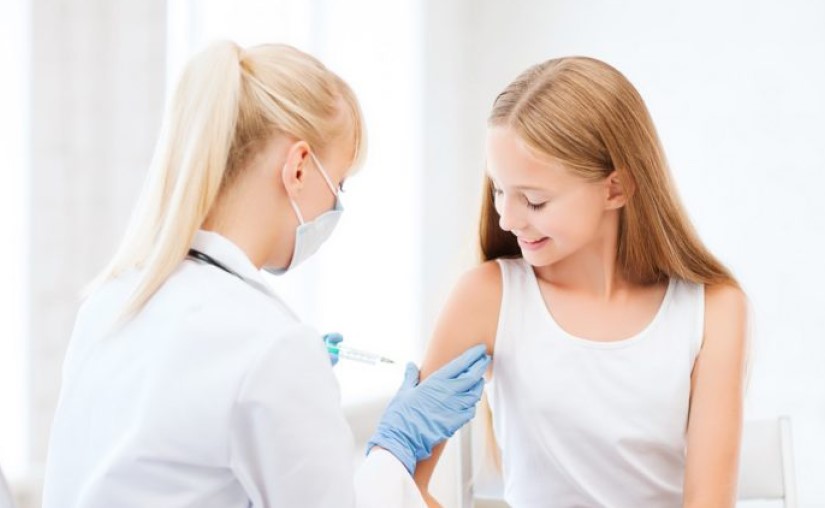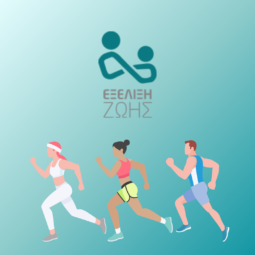In the midst of the Covid-19 pandemic, the value of vaccines as a shield of individual and collective protection is highlighted in the most emphatic way. Every year 2-3 million deaths worldwide are prevented through vaccination, while, according to the World Health Organization (WHO), 750,000 children are saved from disability. It is estimated that 1.5 million deaths worldwide can be prevented if vaccination coverage is increased.
In our country, for about a year now, almost 400 people have been hospitalized in the Intensive Care Units (ICU) with laboratory-confirmed influenza, of which only 15% had been vaccinated, while 130 deaths from seasonal flu were recorded. Also, in the last three years, more than 3,000 cases of measles have occurred, while the recording of 580 cases of tuberculosis every year is equally worrying.
For all the above reasons, it becomes even more necessary to adhere to the existing National Vaccination Program for all age groups, infants, children, adolescents and adults. In this critical period for public health, even higher rates of vaccination coverage should be achieved and delays in vaccinations should be avoided (Vergou, 2020).
Indicatively, these are some diseases from which vaccines protect us:
TETANUS: Caused by a germ that enters the body from wounds or injuries. It causes muscle contraction and pain, usually all over the body, and can even lead to death.
BIPHTHERIA: It is caused by a germ and is transmitted from person to person. It can lead to respiratory problems, paralysis, heart failure and even death.
WHOOPING COUGH: Caused by a germ and causes severe coughing and difficulty swallowing and breathing. It can lead to pneumonia, convulsions, brain damage and death, especially in infants.
POLIO: a disease caused by a virus. It usually enters the body of a child or an adult through the mouth. It can often lead to very serious illness with complications such as paralysis of the arms or legs. It can even lead to death due to paralysis of the respiratory muscles.
HEPATITIS A: Disease of the liver due to a virus. It is transmitted through the mouth and can cause either mild flu-like symptoms up to jaundice (yellowing of the skin or eyes).
HEPATITIS B: Disease of the liver due to a virus. It is transmitted through unprotected sexual intercourse, with the use of an infected syringe by users of illegal substances and during childbirth from the sick mother to the newborn. Causes symptoms such as: loss of appetite, vomiting, diarrhea, jaundice, fatigue, muscle and stomach pain.
Measles: This virus causes high fever, eye irritation, dry cough and runny nose. This is followed by a rash that usually lasts 5-6 days. Its serious complications are encephalitis, otitis and pneumonia.
INFLUENZA: The flu virus usually has some of the following symptoms: fever, sore throat, chills, extreme tiredness, cough, runny nose, myalgias and headache. Influenza can lead to pneumonia and thus can be dangerous for people with heart or respiratory problems.
PNEUMONOCOCCUS: The pneumococcal germ is transmitted from person to person through close contact (mainly with oral droplets). Its most serious manifestations can be pneumonia, meningitis (which can lead to permanent deafness) and bacteremia, ie its spread in the blood.
MININGITOCOCCUS: It is a common germ found on the back of the nose and throat. Symptoms may include severe headache, high fever, neck stiffness, joint pain, dizziness or confusion, drowsiness, photophobia, and a characteristic "red spot" rash.
HUMAN PAPILLOMAVIRUS (HPV): It is very common, and we know that 70% of sexually active people will come in contact with the virus. It is transmitted very easily, in contact with the genital area. Using a condom can reduce the risk of infection, however it does NOT completely protect. It is responsible for cervical cancer and precancerous lesions of the cervix, vulva and vagina, as well as for genital warts and a percentage of oral cancer in women and men. The most effective way to protect against the Human Papillomavirus is to get vaccinated, as the virus cannot be prevented in any other way. Vaccination is best done before the start of sexual intercourse; however, it can be done afterwards and significantly protect (TOGETHER FOR ADOLESCENT HEALTH, 2020).
Bibliographical references:
Vergou, N. (2020). The importance of vaccination. Retrieved on 09/08/2020 from the site: https://www.efsyn.gr/nisides/242607_i-simasia-toy-emboliasmoy.
TOGETHER FOR TEENAGER HEALTH (2020). What Happens in Adolescence? - Vaccinations. Retrieved on 09/08/2020 from the site: https://youth-life.gr/documents/issues/Entypo-Emvoliasmoi%20final.pdf









